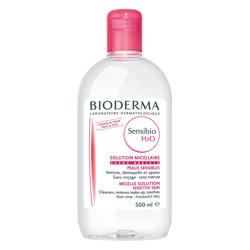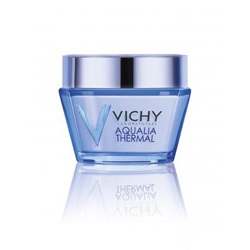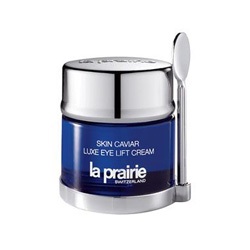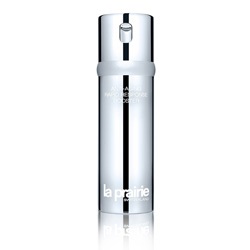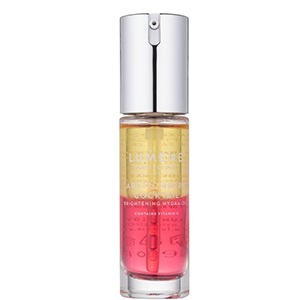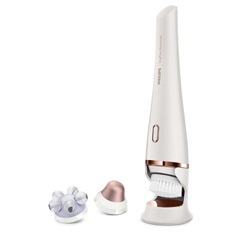Skin Care from A to Z
Healthy and beautiful skin is the result of quality care that needs to be provided daily. Our demanding environment, external factors, stress and the hustle and bustle of our everyday lives can negatively affect the condition of our skin. Do not forget to clean your skin twice a day (morning and evening), apply quality face cream and other specialized skin care products according to your skin type, age and other specificities of your skin. By carefully selecting your cosmetic products, you can also effectively fight wrinkles or acne.
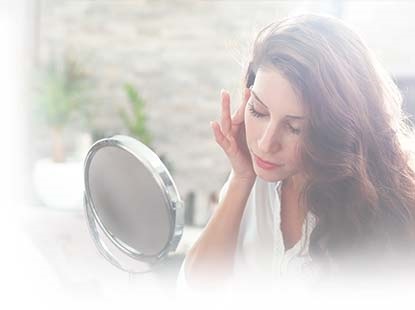
What skin care products to choose?
Skin Care FAQ
Glossary - Substances you may find in your cosmetic products
Alcohol
Alcohol is a common ingredient in cosmetics, used as a preservative and disinfectant. To work well, it is often used in larger quantities, which is not particularly suitable for dry and sensitive skin or skin that gets easily irritated. However, its drying effect makes it unsuitable even for oily skin as it gets more oily if it is forced to dry out unnaturally.
Allantoin
Allantoin is a substance that accelerates regeneration, so it is a common ingredient in medicinal products to support healing. It is used in cosmetics for the same reasons, but it also has softening and smoothing effects. It speeds up cell regeneration, which makes it ideal for rough, chapped or sensitive skin, as well as for relieving skin tension.
Aloe vera
Aloe vera is very popular in food and cosmetic products. Aloe Vera extract has anti-inflammatory, detoxifying and healing effects. It is also anaesthetic, so you often find it in sunscreens.
Amino acids
Amino acids are an essential building block of protein and support the effect of vitamins and minerals, therefore they are an important part of cosmetic products. They encourage healthy hair, skin and nail development.
Antioxidants
Antioxidant are natural substances in the body. In cosmetic products, antioxidants help prevent cell damage and disarm free radicals, protecting cells from oxidation and other degenerative changes. This prevents premature aging, while increasing skin resistance. Vitamins C and E and beta carotene are among the best known antioxidants.
DMAE
DMAE (dimethylaminoethanol) is a naturally occurring substance found in our bodies. It is used in cosmetics for its ability to stop the production of arachidonic acid, which is responsible for wrinkles and skin aging. It also helps with pigment spots.
Elastin
Elastin is a protein that forms a major part of the fibres in our body, providing elasticity. With age, elastin in the body decreases, resulting in loss of skin elasticity and more wrinkles. It is most often used in cosmetics together with collagen, as they visibly smooth out and rejuvenate the skin. Elastin also helps with wound healing and skin damage.
Glycerine
Glycerine is moisturizing, which makes it a popular ingredient in creams. It binds water, which may be harmful in large quantities, leading to deep dehydration of the skin. It is not recommended for skin suffering from acne or blackheads.
Snake venom
Snake venom is a substance that, if you are bitten by a snake, can be deadly. However, when used in medicine and cosmetics, it can deliver unexpectedly positive, desirable effects. In Antiquity, snake venom was used as a treatment, while in cosmetics, its paralyzing effects are used to prevent wrinkles. It has effects similar to botox but does not affect facial expression. It is completely safe to use it in cosmetic products.
Hydrolysed protein
Hydrolysed protein is a chemical compound broken down into smaller units. In hair products, you can find wheat protein to strengthen and hydrate hair, silk protein to increase hair elasticity, resistance and shine, milk protein suitable for dry and damaged hair, soy protein to add shine and smoothness, collagen to increases elasticity, plant protein for moisture and split ends treatment, keratin to strengthen hair, give it more softness and shine and to reduce frizz.
Inulin
Inulin is used for its moisturizing and softening effects. As a part of creams, it creates a microscopic film on the skin or hair surface with soothing effects, and in shampoos, it has a smoothing effect.
Coenzyme Q10
Coenzyme Q10 is widely used in sports and medicine, but is also popular in cosmetics for its rejuvenating effect, as it protects the skin against premature aging. As an antioxidant, it helps the skin stay moisturized and regain a youthful appearance. Coenzyme Q10 is recommended to be used as early as in your twenties, when the skin slowly begins to age. In your thirties, it should be the basic ingredient in your cosmetic products.
Collagen
Collagen is the most important protein in our body. It is the basic building material of all connective tissue, which means that it ensures elastic skin, strong nails and healthy hair. Collagen deficiency is revealed by the appearance of wrinkles and decreased quality of the skin, nails and hair. With increasing age, it is suitable to use collagen in cosmetics, but also to take it in the form of supplements.
Hemp
Hemp oil has an anti-inflammatory effect, can regulate hydration and helps protect the skin. It is suitable for all skin types, including dry and sensitive skin, as well as oily skin, but it is necessary to choose the adequate consistency of the product (lighter creams for problematic skin, thicker creams for sensitive skin).
Creatine
Creatine is a natural substance, an amino acid, which has an important function in the body. In cosmetics, it is used in products for dry and damaged hair, giving it back its elasticity and shine. Hair damaged by sunlight, dyeing and styling with hot air will regain its quality if you use products with creatine regularly.
Ascorbic acid
Ascorbic acid is referred to as vitamin C. It works as an antioxidant that is often used to improve the quality of dry and damaged skin, reduce peeling and improve skin elasticity. It contributes to regeneration, which makes it a popular ingredient in cosmetic products.
Hyaluronic acid
Hyaluronic acid is a substance naturally occurring in the body, but it decreases with age. It is popular in not only the pharmaceutical industry, but also cosmetics. It is used to help fight skin aging. It promotes skin elasticity, effectively hydrates the skin and has a healing effect. With age, the skin loses elasticity and dries out easily, so hyaluronic acid is an excellent helper that keeps your skin fresh and youthful as long as possible. It is also used in hair and nail products.
Lanolin
Lanolin helps protect the skin with a waterproof layer, which is why it is an ideal ingredient for a variety of creams. You will mostly find it in winter creams as it effectively protects the skin against cold.
Lecithin
Lecithin promotes skin elasticity and softness without drying it out. It helps the skin breathe and restores natural hair protection. It offers many positive effects, so it is very popular in cosmetics.
Seaweed
Seaweed in cosmetics is particularly beneficial for normal, dry and aging skin. It helps with cell renewal, has a nourishing effect and is suitable for skin suffering from psoriasis, eczema and other skin conditions. It also offers effective hydration. Seaweed is not suitable for oily skin due to its pore-clogging effect.
Oils
Many oils are used in cosmetics, each with a different effect. Some are suitable even for oily skin. Jojoba oil moisturizes, nourishes and heals, linseed oil has regenerative properties, which make it ideal for skin suffering from eczema or psoriasis. Macadamia oil protects and moisturizes and is suitable for damaged hair. Almond oil soothes irritation, helps treat dry skin and is also ideal for sensitive or sunburned skin. Castor oil is amazing for mature skin, preventing wrinkles, but may cause irritation, which is why it may not be suitable for sensitive skin.
Panthenol
Panthenol improves the quality of skin and is used in regenerating creams, including creams that treat sunburns. It is also a popular component of pharmaceutical products for its positive effects. It has strong moisturizing, softening and soothing effects, makes hair more shiny and improves its texture.
Paraben
Paraben is a preservative that is often used in cosmetics, ensuring microbial stability of a product for as long as possible. Thanks to parabens, cosmetic products can last up to two years without going bad and without bacteria or mould growth. However, it is a controversial substance, as some studies point out its harmful properties. Parabens may affect hormonal activity, but their direct harmfulness has not yet been proven. Their use is considered safe in cosmetics, and their absence may cause more problems if the product contains other, worse preservatives or if a product without preservatives gets infected with bacteria that will destroy the quality of the product and put your health in danger. The most common types are methylparaben E218, ethylparaben E214, propylparaben E216 and butylparaben.
Peptides
Peptides are proteins that, thanks to their small size, easily and effectively penetrate the skin. These active molecules form a communication network in the skin that reports skin damage, ensuring that new collagen is formed. In cosmetic products, they help to improve the natural healing process of the skin, so they are suitable for mature skin.
Retinol
Retinol is a form of vitamin A required by the body. It is essential for the proper function of cells in the top layer of the skin. If there is retinol deficiency, the keratin-producing cells are diminishing, resulting in dry skin that is losing its elasticity and wrinkles start to form. Retinol promotes skin cell renewal and the production of elastin and collagen, which are substances that prevent skin aging. It is one of the most effective ingredients used in cosmetics to fight skin aging.
Sulphate
Sulphate is a substance acting as a detergent that removes dirt and grease. It is most often found in shampoos, shower gels and foams, conditioners and toothpastes under the abbreviations SLS (Sodium Lauryl Sulfate) and SLES (Sodium Laureth Sulfate). It causes the products to foam. The harmfulness of sulphates is often emphasized but has not yet been proven. However, they can cause irritation; for example, in toothpastes, it can cause irritation of the oral mucosa. When used excessively in products such as creams, sulphates may cause irritation if you have sensitive skin.
Gold
Gold is a unique material that has found its use in cosmetics, too. It helps remove toxins and cleanses and regenerates the skin. After applying cosmetic products with gold, the skin looks brighter and healthier. It is used in the form of flakes or nano particles known as colloidal gold.
Cosmetics from A to Z